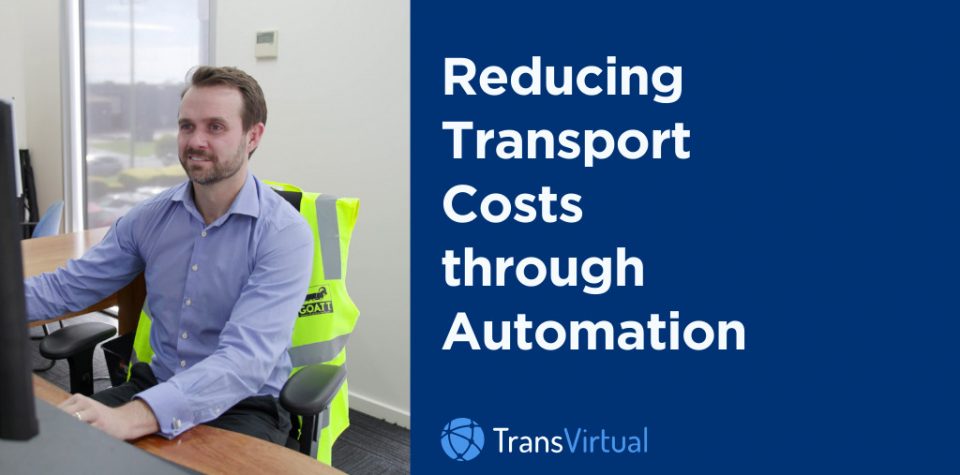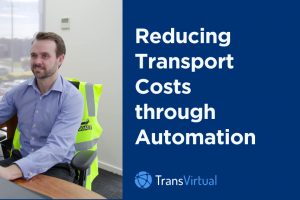Table of Contents
Over the last few years, rising transportation costs have created challenges for businesses everywhere. Our industry has been significantly strained by fluctuating fuel prices, labour shortfalls, limited capacities, and increasing delivery demands.
It’s clear that sticking to outdated processes isn’t cutting it – we’re in desperate need of a fresh approach.
This increasing need has moved automation straight into the spotlight. When businesses apply these cutting-edge technologies – artificial intelligence, machine learning, advanced data analytics – automation can revolutionise transportation processes from the ground up.
Forward-thinking businesses already embrace automation. And for a good reason too!
Automation lets you optimise routes, plan loads, efficiently track and maintain vehicles, to mention a few. That means you’ll see massive benefits like slashed costs, boosted efficiency, and happier customers.
In this article, we’ll cover some of the key factors driving rising transportation costs and how automation can address each one. We hope the game-changing potential of these innovative new approaches is crystal clear by the time we’re finished!
Factors Impacting Transportation Costs
There are a ton of variables that influence transportation costs, but certain key factors have emerged as the most consistent pain points throughout the industry. Fuel prices continue to soar driven by global market fluctuations and supply disruptions. Persistent drivers and other personnel shortages have even compounded labour-related expenses.
Another significant cost burden to many carriers is maintaining an aging fleet.
In addition to routine maintenance and repair costs, you also need to replace outdated and inefficient trucks and trailers with newer, more fuel-efficient models that require substantial capital investments. And coupled with capacity constraints, you may have underutilised assets sitting idle rather than generating revenue.
But then there’s a set of darker, hidden costs: inefficient routing, improper load planning, poor visibility, and time-consuming manual processes.
While these inefficiencies are small, they multiply rapidly and build upon one another, resulting in wasted mileage, high fuel consumption, late deliveries, and dissatisfied customers.
The need to identify and implement cost-saving solutions has never been more dire. If you want to maintain your profitability and gain a competitive advantage, automation may be the perfect solution to all these issues and more.
7 Ways Automation Reduces Transportation Costs
1. Intelligent Routing
Through automated route planning and optimisation, you tackle soaring fuel costs and reduce inefficiencies. When you factor in real-time data – traffic patterns, road conditions, vehicle specifications, delivery constraints – automation software built into a transport management system (TMS) can calculate the most efficient routes. This minimises total mileage, reduces fuel consumption, and boosts on-time performance.
2. Visibility & Tracking
The most proactive approach for issue resolution involves maintaining real-time visibility on shipment locations and vehicle movements. Automation enables granular tracking capabilities that allow dispatchers to monitor progress, identify delays, and make more informed decisions that mitigate disruptions. Higher visibility also facilitates better customer communication to minimise confusion and complaints.
3. Load Planning
Aside from fuel costs, underutilized trucks can lead to wasted space. This leads to wasted money, as load planners may need to order more trucks or leave cargos on the dock.
An automated system can analyse dimensions, weights, and special handling requirements to plan ideal cargo configurations. This will minimise underutilised space, reduce trips, and lower handling-related damages. In other words, better space usage means lower costs.
4. Load Consolidation
Automation enables you to combine multiple smaller shipments into single truckloads. With fewer vehicles needed for the same freight volume, you’ll decrease both fuel expenditures and emissions. Plus, better asset utilisation means your existing fleet has more revenue generation capacity overall.
5. Intelligent Carrier Management
Automating carrier management makes a big difference in controlling transport expenses.
A quality TMS can evaluate real-time factors like rates, availability, performance metrics, and compatibility with shipment requirements. All these helps you identify the most cost-effective carrier for every load. Such a data-driven approach also eliminates guesswork, reduces delays and errors, and ensures competitive pricing.
6. KPI Tracking
You simply can’t improve what you don’t measure.
Automated transport solutions enable comprehensive tracking and reporting capabilities that monitor key performance indicators (KPIs) like on-time deliveries, miles per gallon, asset utilisation, and more. This performance visibility puts a spotlight on areas that can be improved. It also enables data-driven decision-making so you can continuously optimise processes, control costs, and drive operational excellence.
7. Automated Billing
If you’ve been in the transportation industry (or any other industry) long, you know that manual billing processes are notoriously error-prone, time-consuming, and costly. With automated invoicing, payments, and audits, you’ll streamline financial operations by eliminating duplicate data entry, minimising billing errors and delays, and gaining real-time insights into cash flow.
This enhanced efficiency leads to significant cost savings through productivity gains, improved revenue capture, and stronger customer retention.
Ready to Enhance Transportation Management Through Automation?
Reining in your escalating transportation costs is a critical challenge your business can’t afford to ignore. Volatile fuel prices, labour shortages, capacity constraints, procedural inefficiencies – all these factors strain your budget and jeopardise your maximum profitability.
Transportation is a high-stakes landscape, so don’t take chances on ignoring the clear and obvious solutions automation has to offer.
If your transportation costs seem to be spiralling out of control, TransVirtual can help. We’re industry leaders in transportation management software, empowering businesses with a unified, cloud-based platform that fully harnesses the power of optimisation algorithms, machine learning, and predictive analytics.
Our innovative software equips you with intelligent routing and shipment visibility, optimised load planning, data-driven carrier selection, and much more. We want your business to be positioned to conquer virtually every logistics challenge.
Don’t let your inefficiencies hold you back any longer – connect with the experts at TransVirtual and schedule a free strategy session with our experts today!



